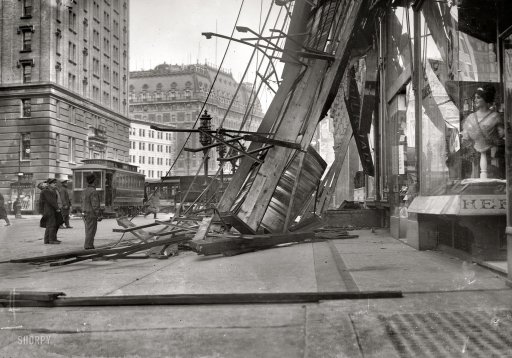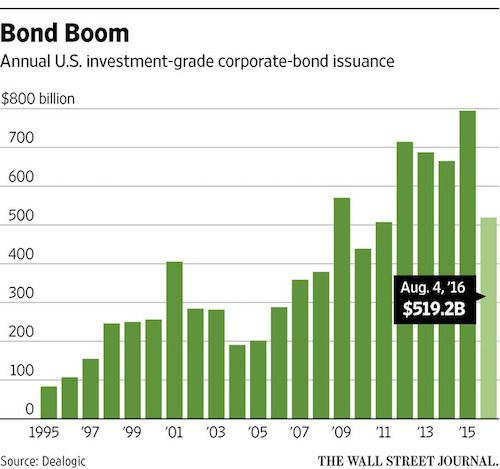
Bruce Davidson Iran 1964
Let’s see. On February 18, I wrote an essay called “Not Nearly Enough Growth To Keep Growing”, in which I said “..the Automatic Earth has said for many years that the peak of our wealth was sometime in the 1970’s or even late 1960’s”.
That provoked a wonderfully written reaction from long-time Automatic Earth reader Ken Latta, which I published on February 23 as “When Was America’s Peak Wealth?”. Ken put peak wealth sometime in the late ’50s to early 60’s. As I said then, I really liked his definition of ‘wealth’ as being “best measured by the capacity to be utterly wasteful”. The article spawned a series of nice comments, for some reason largely by people in his age bracket (Ken’s 73).
Which is nice, but it poses as many questions as it provides answers. Like: why does the Automatic Earth have so many ‘older’ readers? Should that be a reason for worry? And also: why don’t the young react in equal numbers? Don’t younger Americans have as many ideas as the generation(s) before them about when America’s peak wealth might have occurred?
Must one have been an eye-witness to the decline to know that it happened? Do only old farts ponder these things? Are there lessons to be learned, be they personal or history-wide? Interesting, all of it, if you ask me. Do younger people not acknowledge that peak wealth is behind us, and perhaps occurred before they were even born? Me, I like history lessons, and Ken’s for sure.
Tomorrow, I’ll have another take on all this written by Charles A. Hall, Emeritus Professor at State University of New York College of Environmental Science and Forestry, Syracuse. Charlie thinks neither Ken nor myself have given nearly enough attention to the role energy plays in wealth, and the peak thereof.
But first, here’s Ken Latta’s response to the comments on his article.

Ken Latta: The responses to my article on peak wealth were so thought-provoking that a follow-up article seemed appropriate. You can’t cover the history of the world in one blog post and I appreciate the additional ideas from the commentariat.
John Day: I remember 1969 as better than 1970. That first moon landing was a real high point for all of us. Everybody thought 1971 sucked. Things were different after November 1963. LBJ was a “sonofabitch”, as he put it. It’s hard to nail a year down, but after we lost our president, things were never the same.
John Day: Reminded us of a substantial breaking point the assassination of John Kennedy represented to the flow of history. But, history has its own problems. The finer details are oh so often swamped by a popular narrative. JFK was way more beloved dead than alive. Like Trump he could draw big crowds, but he very narrowly beat Nixon. Detractors favored referring to him as weak on foreign affairs.
I clearly recall were I was when the news came in about him being shot in Dallas. I was hanging out with some of my squadron mates in our team office when our Captain came by to inform us. He was African-American and clearly disturbed by it. It was much less concerning to the enlisted ranks. He had not been popular with most of us. It was a divided nation even then. I think his mourners should not forget that JFK presided over the early stages of the Viet-Nam adventure. With Green Berets and meddling in the South Viet-Nam government’s affairs, as is our custom.
It was just another case of his bad luck really. The American War on Viet-Nam could have happened to Eisenhower. My older brother was staged in a Korean Port waiting for orders to board a troop ship for transport to what was then still usually known as French Indo-China to support the French Army in their losing battle against the Viet Minh. But, Ike was a fairly sensible man and called it off.

V. Arnold: Wow, great thread. I’m 72 and was there also; I remember it pretty much as you tell it. I’d agree with your time-line also as to when peak wealth occurred. The beginning of the downturn was very late in the 50’s/early 60’s with our war in Vietnam and then; Nixon going off the gold standard. That allowed the next chapter of crony capitalism.
I attribute an accelerating deterioration to Friedman and his Chicago School of Economics and the age of the neo-liberal. Don’t forget Reagan; I felt the effects of his union busting first hand with stagnant wages until I retired over seas in 2007. I hope to read more of your writings from time to time. Cheers.
V. Arnold: Wrote very derogatory words about Uncle Miltie Friedman and the Chicago School of Terror. For that I salute him or her. Hell is too good for Milton and his apostles.
Forget Reagan? Not as long as I live. I also remember where I was when he was declared the next president. Sitting in the nicest bar in the little mountain town of Boulder Creek, Ca, nursing a drink. The bar was crowded and broke into loud celebration at the news. All I could think of was how f**king doomed we were. How I wish I had been wrong.

Hotrod: Thank you for your thought provoking article. I sometimes look at the health of the surviving car companies after WWII as a bellwether to the shape of the economy. Hudson, Nash, Studebaker, Packard all were struggling mightily by the mid 50’s. For the farming community the peak was about 1952. After the post war demand had been met, and greatly exceeded, farming declined into a real recession during the middle and late 50’s and never was quite the same.
Since then, machinery and technology, mostly purchased on credit, has kept production up and prices down for farmers, typically at or below the cost of production. Many of these labor saving and production enhancing tools stand unused, but are still being paid for. The only exception to this situation is massive drought, or massive flooding which can temporarily insert profitability to those not affected.
Hotrod: Reminisced on the tribulations of many car makers [Hudson, Nash, Studebaker, Packard], some of them long established, in the early 1950’s. I remember that too. I think a substantial part of their problems probably stemmed from not having enough dealerships. People were traveling more and wanted reassurance that a dealer with parts and experienced mechanics would be available in the next town. I think it actually surprising that those companies lasted as long as they did. Actually Nash and I think it was Packard merged to become American Motors and lasted another three decades.
He (my assumption) also mentioned farming and its trials. Farming is not the easy route to riches. The compensation has always been that if you hadn’t pledged your feal to the Lord of a Manor or signed up to be a share cropper, you were your own boss.
The late 40’s thru early 50’s were pretty good on our farm. When I was a little tike, we had an already ancient Macormick-Deering 10-20 tractor and a team of draught horses. My eldest brother having been told of his tour of northern and central Europe under the guidance of a man named Patton, wrote to dad asking him to take the money he had been sending home and buy a new tractor. All dad could find at a local dealer was a Minneapolis-Moline as they were about the only company allowed to build tractors during the war.
Many of them were shipped to England to help the British increase their food production. That was the only brand new tractor our family has ever owned right up to this day. My nephew still has it, but it’s in bits and pieces now. By around 1950 we were fully mechanised. Shortly after dad died in 1959, my brother rented out the land got himself a factory job. The prices of equipment steadily increased. The value of crops did not.
Crop prices did increase substantially about a decade ago, but not nearly enough to pay for new equipment unless you operated a very large farm. And more recently crops have declined in value again. I think a lot of farmers are in trouble.

Patricia: I am worried. Everybody who comments here is in their 70s as I am. Is that because we have more time to reflect and write down our thoughts or is it because the youth of today aren’t interested in anything except Facebook? If that is the case then I am so glad I am at the end of my life but what about my darling grandchildren.
Patricia: Expressed concern over whether the prevalence here of geezers was due to us having too much time on our hands or the youth having no time for anything except Facebook. Based on my own family, I can say that their devotion to Facebook is tempered by addiction to gaming. I mean video not casino. I think we can say that Patricia is right on both counts.
I too feel a certain gratitude for having been born during the war years with the expectation that I may be expired before the ordure collides with the air circulator. We oldies do have a psychological quandary with regard to our descendants. Knowing as we do that it’s coming. I too have grandchildren and a great grandchild. I desperately wanted to make them aware and try to offer some guidance.
What I learned was that they are at least vaguely aware of the looming threats and don’t want to hear more about it. They know there isn’t really much they can do about it. I think they believe that when it happens they will just do what they can to deal with it. All things considered (apologies to the Canadian Broadcasting Corporation, I wonder if that program is still on) that is probably about the best attitude any of us can have.
What bothers me most about our youth is what they don’t seem to know. I’m talking about the kinds of knowledge that will likely be very useful when things get stinky. Larding debt onto the kids so they could go to college and learn computer science, physics, art history and how to be a social justice warrior was probably to their detriment.
I don’t exactly know what would be absolutely best for them to know, but I’m pretty sure it isn’t those kinds of things. I tend to believe that it will be good to know, as examples, how to shoot, how to fish, how to tell the difference between weeds and food, how to loosen rusted bolts and how to turn hemp into rope in addition to dope.











